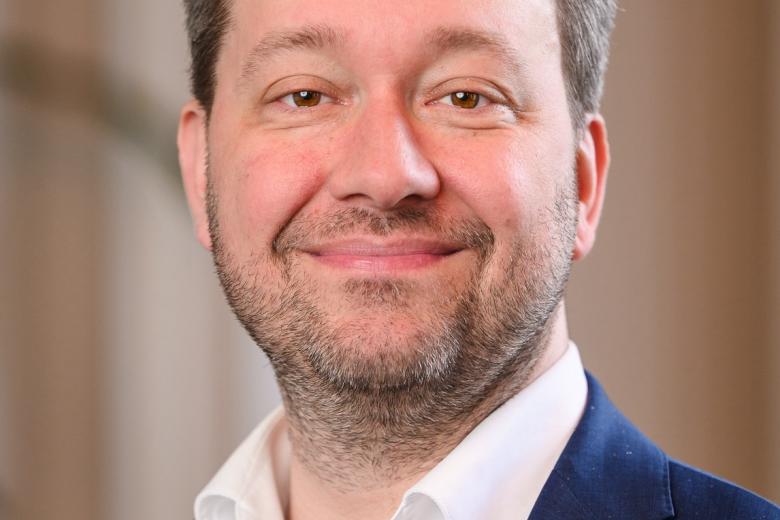Maastricht Project on European Contract Law 2013
Course on European Contract Law - how has it been in the past 5 years?
Like in previous years, M-EPLI fellow William Bull and I, in close cooperation with M-EPLI Director Jan Smits, offer our course on European Contract Law to about 120 enthusiastic undergraduate European Law School students. In the past 5 years that I have had the pleasure of responsibility for this course, it has become a laboratory for experimentation with legal education.
In previous years, student participants to this course represented an expert group in European Contract Law designing their optimal rules for the EU’s internal market. In doing so, these students discussed questions of design (form, legal basis, optimal level of regulation) and were then divided in sub-groups dealing with substantive aspects of contract or property law (such as formation, remedies, transfer of ownership and security rights). I blogged about our experiences last year. At the end of that post I already announced my intentions to change the scope of the course to include negotiations.
This year we have done so. Under supervision from William Bull and myself, students work on the Common European Sales Law (CESL) proposal of the European Commission, representing one of the 27 Member States. The students still work in sub-groups in which they analyse and criticise the CESL proposal, but each student this year also represents a country. The Member State delegations – of course – vary in size and have a different composition than the sub-groups. Through the electronic learning environment, students communicate with each other and try to create their Member State position.
Apart from the content of the contract course – students discover Member State and EU contract law along the way – students are trained in negotiating skills and EU politics. With the help of Frank Lavadoux, experienced negotiator and trainer from EIPA, and former VP and MEP Diana Wallis, students have acquainted themselves with the political surroundings of their course. Pre-negotiations start next week.
On Tuesday 11 June students will present their sub-group results as well as sit in an intense negotiation session representing their Member State position in a Council of Ministers setting. CESL is the basis for the negotiations. The result is so far unknown, but looks exiting from the work the students are currently undertaking. It certainly creates awareness for the difficulties surrounding European private law at the moment, which students can easily transpose to other fields (such as criminal law or tax law). Besides this, they also learn more about the inner workings of the EU, including council rules of procedure, trilogues and the role and influence of interest groups.
I am happy to report that, although complicated in its organisation, the course is working very well and we are exited to see the outcome on which we will certainly report. I remain open for national and international cooperation on this matter in the years to come, regardless of the additional challenges that may create.
Like in previous years, M-EPLI fellow William Bull and I, in close cooperation with M-EPLI Director Jan Smits, offer our course on European Contract Law to about 120 enthusiastic undergraduate European Law School students. In the past 5 years that I have had the pleasure of responsibility for this course, it has become a laboratory for experimentation with legal education.
In previous years, student participants to this course represented an expert group in European Contract Law designing their optimal rules for the EU’s internal market. In doing so, these students discussed questions of design (form, legal basis, optimal level of regulation) and were then divided in sub-groups dealing with substantive aspects of contract or property law (such as formation, remedies, transfer of ownership and security rights). I blogged about our experiences last year. At the end of that post I already announced my intentions to change the scope of the course to include negotiations.
This year we have done so. Under supervision from William Bull and myself, students work on the Common European Sales Law (CESL) proposal of the European Commission, representing one of the 27 Member States. The students still work in sub-groups in which they analyse and criticise the CESL proposal, but each student this year also represents a country. The Member State delegations – of course – vary in size and have a different composition than the sub-groups. Through the electronic learning environment, students communicate with each other and try to create their Member State position.
Apart from the content of the contract course – students discover Member State and EU contract law along the way – students are trained in negotiating skills and EU politics. With the help of Frank Lavadoux, experienced negotiator and trainer from EIPA, and former VP and MEP Diana Wallis, students have acquainted themselves with the political surroundings of their course. Pre-negotiations start next week.
On Tuesday 11 June students will present their sub-group results as well as sit in an intense negotiation session representing their Member State position in a Council of Ministers setting. CESL is the basis for the negotiations. The result is so far unknown, but looks exiting from the work the students are currently undertaking. It certainly creates awareness for the difficulties surrounding European private law at the moment, which students can easily transpose to other fields (such as criminal law or tax law). Besides this, they also learn more about the inner workings of the EU, including council rules of procedure, trilogues and the role and influence of interest groups.
I am happy to report that, although complicated in its organisation, the course is working very well and we are exited to see the outcome on which we will certainly report. I remain open for national and international cooperation on this matter in the years to come, regardless of the additional challenges that may create.
B. Akkermans
Bram Akkermans is Professor of Property Law. Bram specialises in sustainability and property law and combines property theory with constitutional property and property doctrine to explore how property law can accommodate sustainable thinking.

-
Completion of the Maastricht Project on European Contract Law 2013
Thoughts on the outcome of the negotiation session performed by students where they combined an academic EU perspective on private law rules for the EU internal market, with a political perspective of a Member State.
